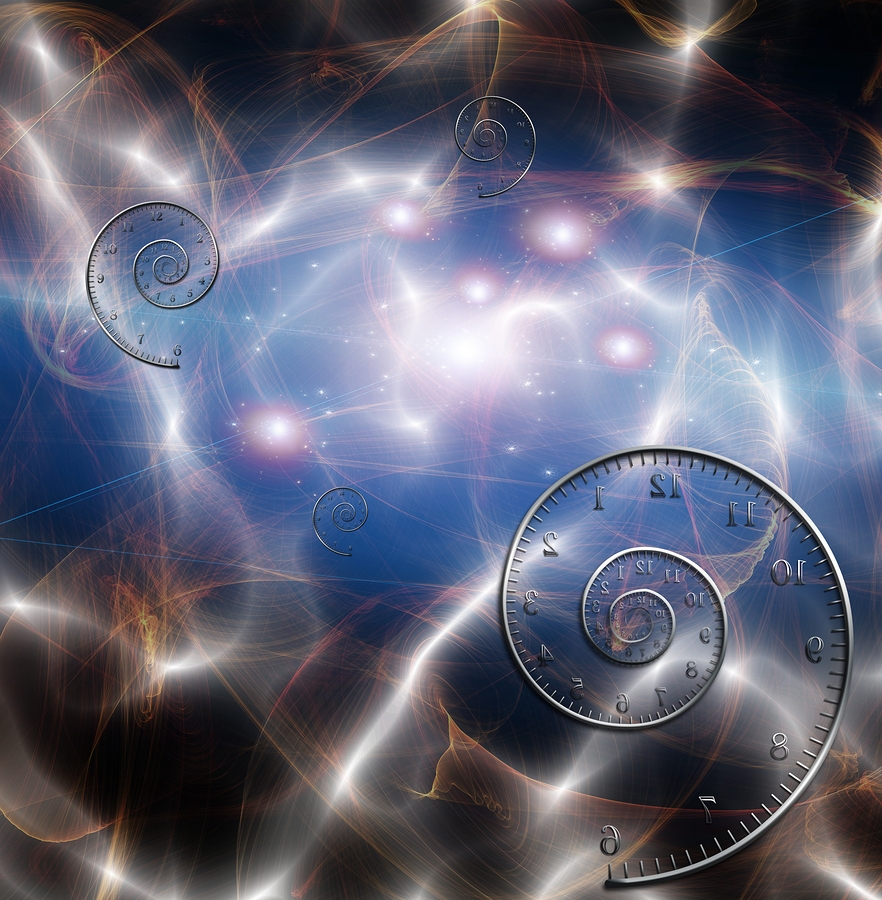
What's the value of a moment? More than we can imagine
Are you feeling more rested this week? Do you notice your watch running a smidgen fast? Maybe it's because of the leap-second added by the National Institute of Standards and Technology on New Year's Eve.
A few of us may take comfort knowing that our clocks are back in sync with the earth's relative positive to the sun, and find it reassuring that all the cosmic gears and cogs are once again in perfect alignment. The rest of us couldn't care less.
But we should.
Ask a typical man on the street how many days are in a year and he will probably answer 365. If he's sharper than average, he'll reply with the more accurate answer of 365 1/4, accounting for the leap-day added every fourth year. But that isn't quite on the mark, either.
Astronomers tell us that a solar year is in fact 365.2422 days long. This eleven minute shortfall explains the error in the original Julian calendar, which slipped behind at a rate of three days every four centuries from the time of the Roman Empire until Pope Gregory introduced his corrected calendar in 1582. But even this system needs occasional tweaking — hence the extra second added last week.
Still, it's only one second. Does it really matter?
Well, yes; it just might.
DOES ANYBODY REALLY KNOW WHAT TIME IT IS?
There are two ways to look at time. First, as a convenient touchstone for organizing our lives. Without some universal standard for tracking our days and our hours, imagine the trouble we would have arranging our affairs and interactions.
But you can also make the case that time really does mean something. The vernal equinox is relevant to agriculture, for determining when to plow, plant, and harvest. Changning seasons affect the migration and mating habits of animals, which have further agricultural consequences. The relative position of the earth to the sun influence predictions of weather patterns, tidal phenomena, and sea currents, providing critical information for shipping and air travel.
There is a psychological significance as well. The more concrete our connection with time, the more connected we are with our past.
Once upon a time, federal holidays meant something to average Americans. Labor Day celebrated the movement that provided security for workers from unscrupulous employers at the outset of the industrial revolution. Memorial Day honored those who gave their lives to defend the values that define us as a nation. Schools, businesses and government offices closed to enable parents to take their children to parades and civic functions so they could absorb the spirit of collective responsibility that shapes a people into a nation.
Labor Day began with a march by 10,000 workers from City Hall to Union Square on September 5, 1882 to celebrate advances in protective labor laws. Memorial Day began as "Decoration Day" — to honor Civil War veterans — on May 5, 1868, a day specifically chosen because it did not coincide with any particular battle. Washington and Lincoln's birthdays accorded honor to our greatest leaders.
So what happened to these days once laden with symbolism and significance?
A DAY LIKE ANY OTHER
The birthdays of George Washington and Abraham Lincoln were merged into a generically vague Presidents Day, presumably celebrating all our chief executives, but thereby blurring the distinction between the truly great, the marginally competent, and the truly inept.
Despite their historic beginnings, Labor Day and Memorial Day are not rooted in transformational events; perhaps this is why their meaning has grown hazy as well, if not virtually forgotten. The relegation of these holidays to some convenient Monday has reinforced the popular attitude that what we are really celebrating is a three-day weekend, rather than the reason for the day we're taking off.
Even the Fourth of July has lost much of its meaning and majesty, largely because we have to add days to lengthen the holiday weekend if it falls midweek or — heaven forfend — if it falls on the weekend itself and thereby deprives us of a day off of work.
WHAT COMES AROUND, GOES AROUND
When time creates the holiday, the day means nothing. But when the day defines the time, it means everything.
Anniversaries celebrate commitments, whether the union between two people as the basis of a family or the establishment of an institution as the foundation of pursuing common values. A birthday should be a day for contemplating the potential of life and the steady ticking away of opportunity.
In Jewish tradition, more emphasis is placed upon the yahrtzeit, the anniversary of passing from this world to the next, to celebrate that accomplishment of a life well lived and the continuation of national tradition. And every Jewish holiday resonates with symbolism and brings all self-oriented activity to a dramatic halt, ensuring that the events of history will remain vivid in our cultural memory.
Time is at once our servant and our master. If we use it responsibly, we can accomplish anything. But always it sweeps us along in its current, indifferent whether we make use of it or not.
King Solomon says: The lazy man is wiser in his own eyes than seven ministers.
With no effort at all, we can concoct limitless justifications for squandering our time, especially when the moments of our lives are severed from the anchor of cultural identity or personal achievement. Any opportunity to remember the value of an hour, a minute, or even a second, is truly priceless.
Rabbi Yonason Goldson is a professional speaker and trainer. Drawing upon his experiences as a hitchhiker, circumnavigator, newspaper columnist, high school teacher, and talmudic scholar, he teaches practical strategies for enhancing communication, ethical conduct, and personal achievement. He is the author of Proverbial Beauty: Secrets for Success and Happiness from the Wisdom of the Ages is available on Amazon.


 Contact The Editor
Contact The Editor
 Articles By This Author
Articles By This Author